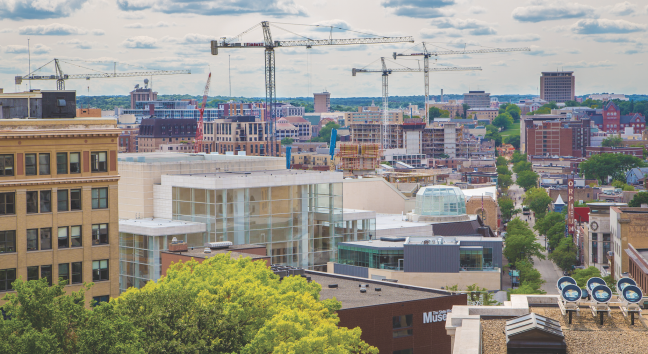Two years since the Race to Equity report shed light on racial disparities within Dane County, community leaders said progress has been slow but steady.
City officials said the report has gone a long way in creating a sense of urgency on the issue of equity. A Madison Urban Ministry official said community efforts have been more focused since the report.
Dane County Supervisor Leland Pan, District 5, said significant efforts to better understand the causes of inequity have been made since the report was published in 2013. Specifically, county work groups compiled a list of recommendations to direct county efforts to curb racial disparities within the local criminal justice system.
The report found a wide range of disparities between black and white Dane County residents in areas such as of child poverty, unemployment, academic achievement and juvenile and adult arrest rates.
At the city level, efforts to promote equity have stayed strong in the years following the report, Ald. Mike Verveer, District 4, said.
“Equity is something that has become more than just a buzzword in city hall,” Verveer said.
In making decisions, Verveer said city policy makers are now considering the potential impact on equity. Creating full time staff positions responsible for equity and looking at issues through an “equity lense” are some of the ways the city has hoped to make change, he said.
More recently, Verveer said the city is considering changes to the bus fare system designed with equity in mind. But he acknowledged the city still has a long way to go in terms of ensuring equity for residents.
Linda Ketcham, Madison Urban Ministry director, said her organization, which works on issues of social justice, was not surprised by the report’s findings. Nevertheless, she said it served an important function in stirring the community.
“[The report] brought attention and focus on what we like to ignore in Dane County,” Ketcham said.
While Kethcam doesn’t doubt the community has made progress, she said in some ways it’s still too early to tell what the legacy of the report will be. She said she remains hopeful and is encouraged by the work being done within the county.
In the time since the report came out, the Madison Urban Ministry has been more motivated to continue tackling issues, such as recidivism among former prisoners, Ketcham said. The organization has worked to ensure their own hiring practices reflect their commitment to inclusiveness, she said.
Ketcham said it’s critical for policy makers to understand the interconnectedness of every area disparities occur as they continue combating inequity.
“Housing, education, employment — those things all intersect,” Ketcham said.
At the county level, progress continues to be made, including understanding how disparities are perpetuated, Pan said.
A lack of data continues to hamper county efforts to address equity, Pan said. The county has responded, Pan said, by creating an equity analyst position within the county executives office.
Local businesses have also taken steps to fight inequity, Verveer said.
The Overture Arts Center now has an equity coordinator and has implemented programs to increase access among low-income communities, Verveer said. One program, called Access for All, works with community organizations to provide event tickets for as little as $2.
Verveer said Overture has also hired an equity coordinator to assist the company in promoting equitable outcomes. He said Overture is just one of a variety of businesses that are now committed to equity, but much remains to be done.
“We are by no means perfect,” Verveer said. “We still have a long way to go.”


